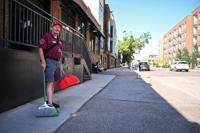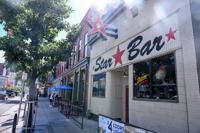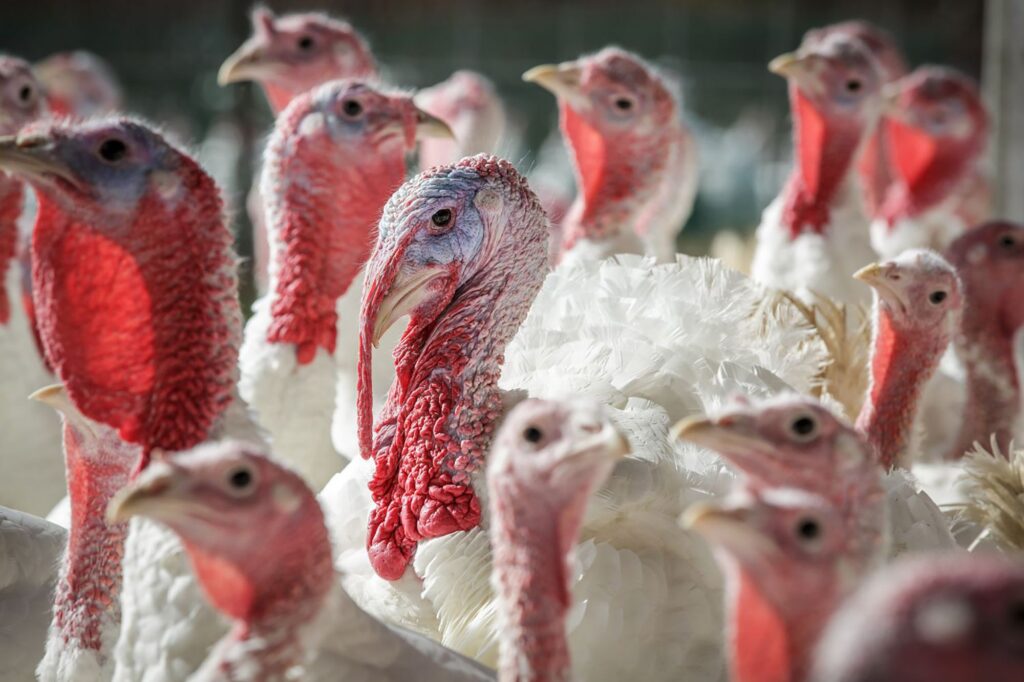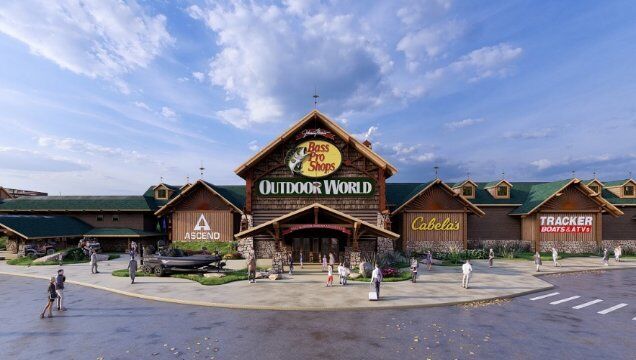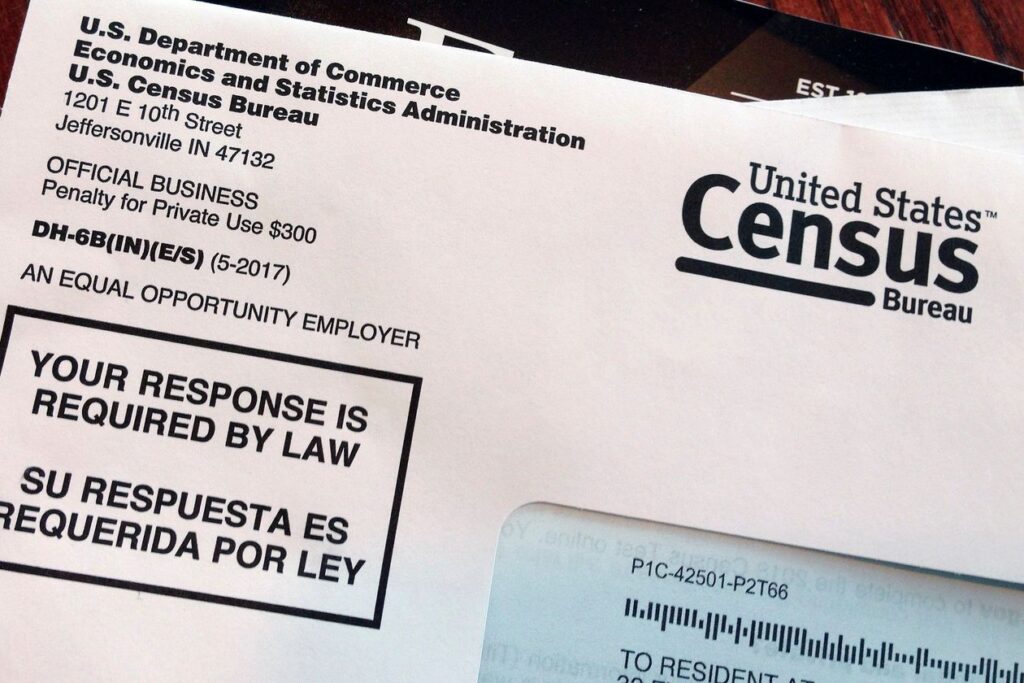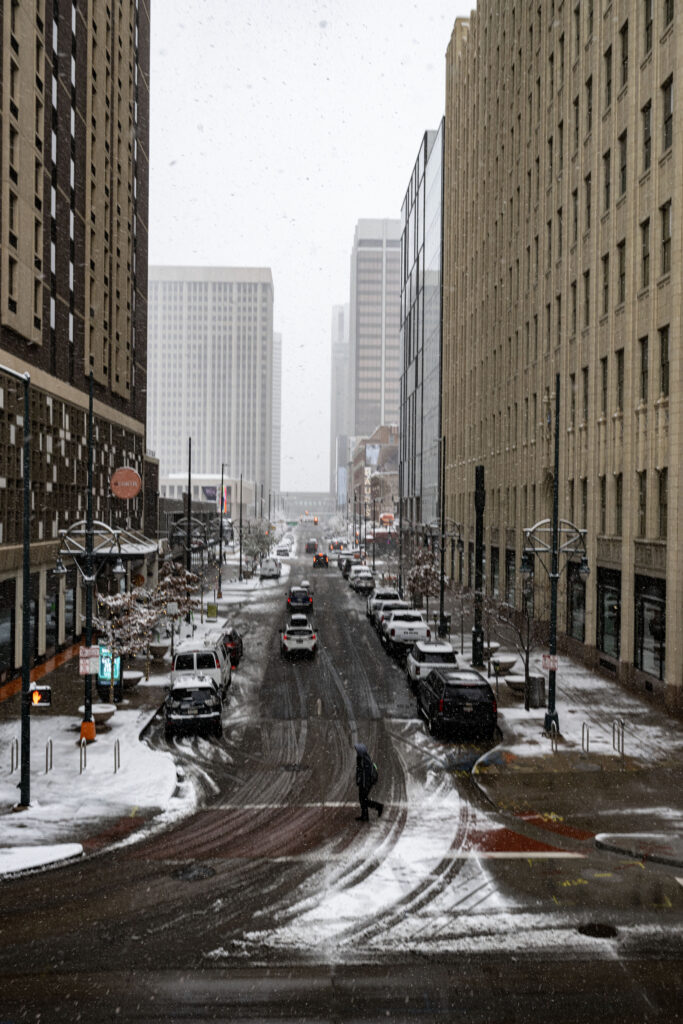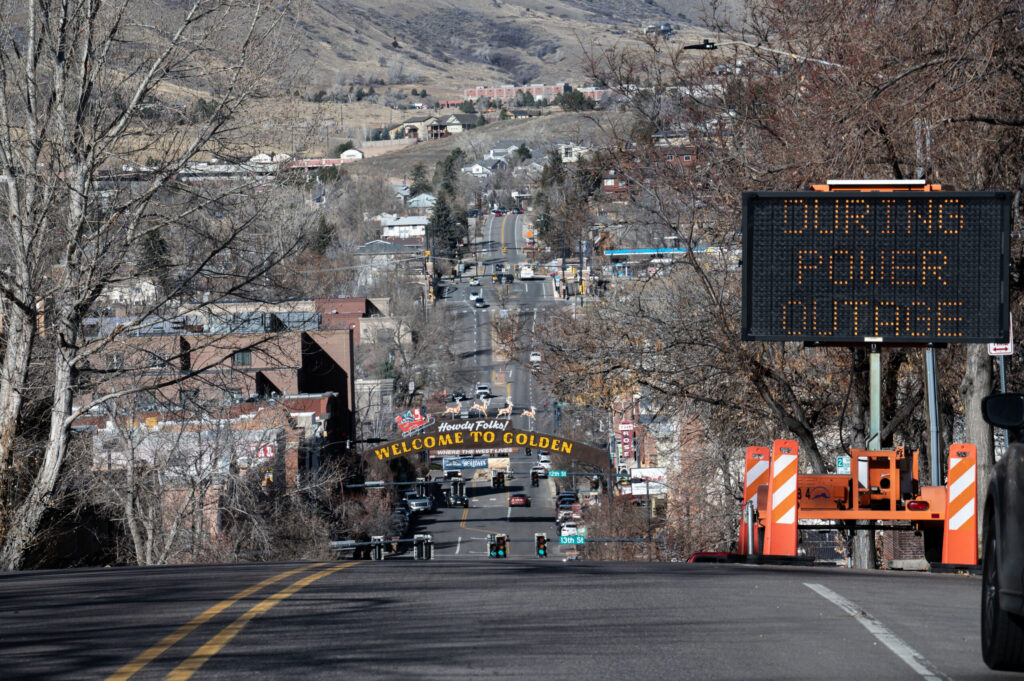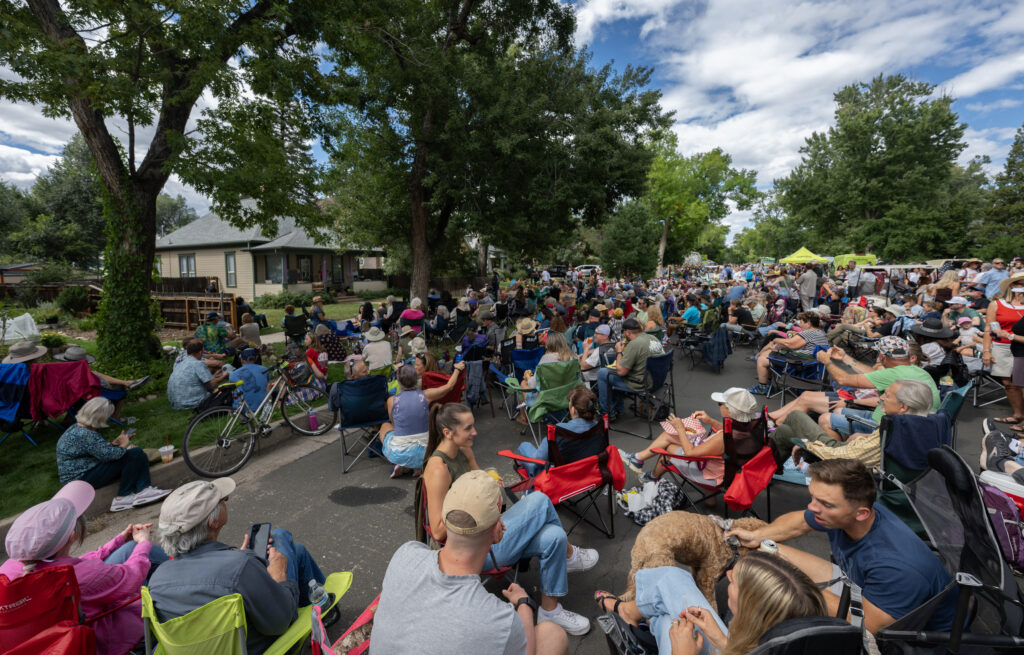As new district, Denver’s Ballpark works to build neighborhood with ‘no off-season’
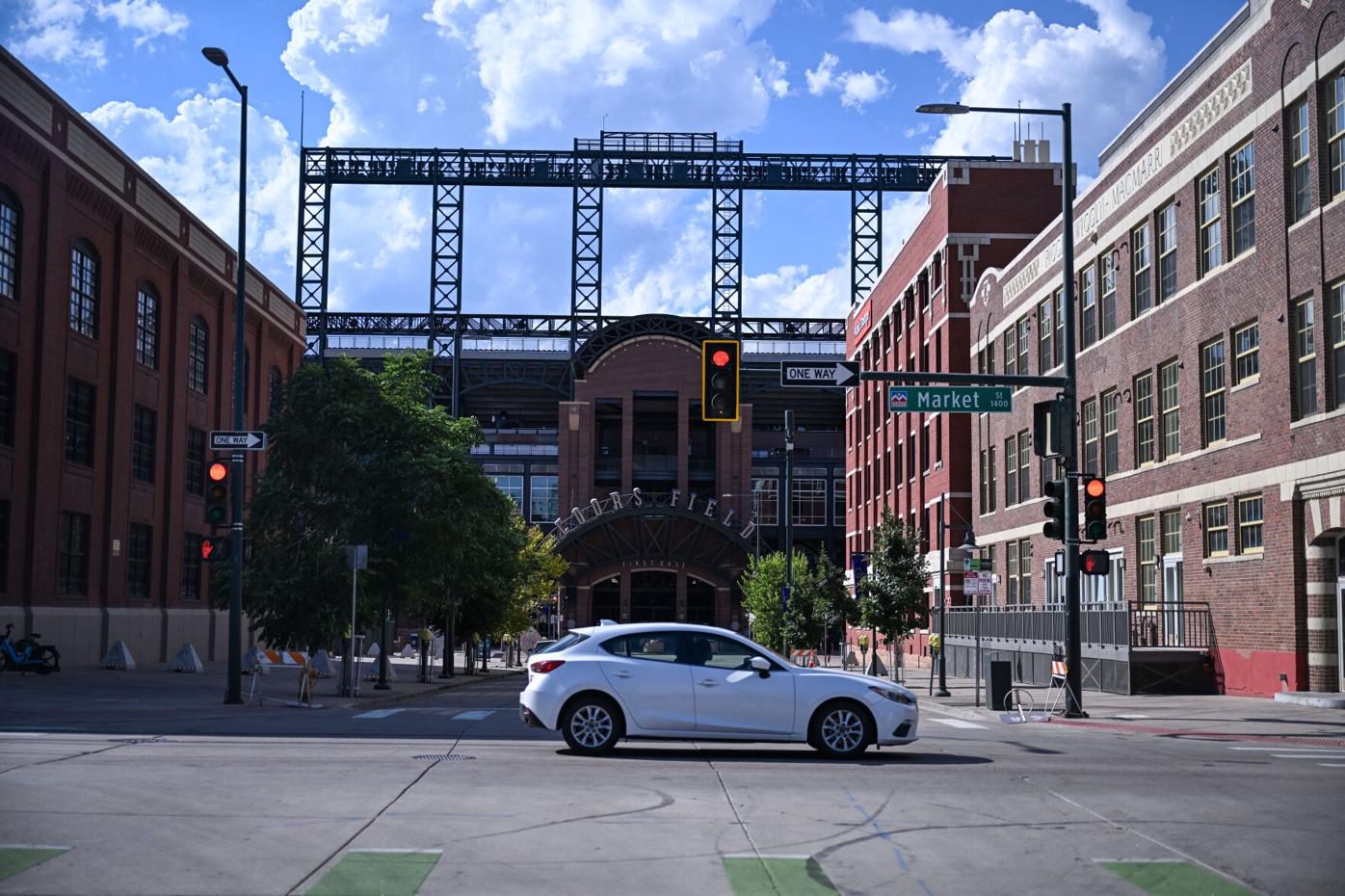
Stephen Swofford/Denver Gazette
One of Ballpark District’s new safety ambassadors Matthew Conant started his day at 5 a.m. Aug. 22, making a pot of coffee to sit on his porch in Five Points.
He got on his bicycle to get to work and took a tour around the neighborhood to check the state of the area.
Each morning, Conant said he looks for the people who he’s gotten to know through the patrol’s homeless outreach initiative since he began the job earlier this year and checks in on them.
Sometimes he just talks to them like they’re any other person, Conant said. And other times he points them to many resources available nearby from the number of nonprofits based in the Ballpark neighborhood.
“Some of the people are going through struggles and hard times, are in search of some help,” Conant said, “Part of what we do is to reach out to people and do what we can.”
Everyday Conant and several other ambassadors patrol the blocks of the neighborhood home to Coors Field with a walkie-talkie, overdose medication such as Narcan, a first aid kit, graffiti removal equipment and street cleaning tools.
They walk around with maroon-and-orange shirts — distinguishing themselves from the purple shirts of downtown Denver’s security team — directing game attendees around the area, engaging with the homeless population and maintaining the cleanliness of the area.

Matthew Conant, a safety ambassador with the Ballpark General Improvement District, talks with a reporter in the neighborhood on Tuesday, Aug. 19, 2025. (Stephen Swofford, Denver Gazette)
The patrol is part of the newly-formed Ballpark General Improvement District, which business owners and residents successfully established on their third attempt after many years of feeling like the city was neglecting the area.
The district taxes both business and residential properties within the neighborhood to fund a variety of services such as private security, marketing and beautification.
Now, under the direction of a new full-time director who managed an equivalent district around Chicago’s famous Wrigley Field, her plan is to make the area known for more than just baseball and a bar scene.
Kate McKenna, Ballpark’s executive director, said she wants to make sure the neighborhood isn’t overlooked by both the city and visitors alike — and get the same respect as surrounding areas in the heart of Denver.
“From all angles, it has this potential,” she said. “For one reason or another, Ballpark has skipped the phases that you’ve seen impact RiNo and downtown, and that puts it in a one-of-a-kind position.”

Axel Garcia Santoval, a chef at La Diabla on Larimer Street, cooks a trompo al pastor outside the restaurant on Tuesday, Aug. 19, 2025. (Stephen Swofford, Denver Gazette)
From new Ballpark resident to managing the district
For McKenna, the new job managing the Ballpark General Improvement District seemed like fate.
For most of her career, McKenna has worked on special districts and chambers of commerce in both the metro Houston and Chicago regions. She worked on building up an arts district in Chicago’s West Town and was the manager of the special service area (Chicago’s version of an improvement district) covering the neighborhood around Wrigley Field.
But she didn’t originally come to Denver for the job, since it didn’t exist yet.
After living in Chicago for many years, McKenna said she wanted change. She had visited Denver several times to see her sister in the city and really grew to like the area because it was mid-sized and had a creative spirit.
McKenna found an apartment in the Ballpark neighborhood, inspired by its charm, and said she prepared to take a gap year and set up her own business while she worked on freelance fundraising initiatives.
But she also looked around for organizations similar to the ones she used to work for and found there weren’t any formal community groups other than the registered neighborhood organization (which is primarily volunteer based) in Ballpark.

Kate McKenna, Executive Director of the Ballpark General Improvement District, poses for a portrait on Larimer Street on Tuesday, Aug. 19, 2025. (Stephen Swofford, Denver Gazette)
She considered starting her own district or something like it one day, she said, but wanted to wait until she really got to know the neighborhood.
What she didn’t know yet was that there were already plans dating back to 2016 in the works.
She began to notice “Ballpark” signs popping up across from her apartment. Then her building hosted one of the information meetings for the General Improvement District’s formation.
“I kept running into it and it feels kismet when that happens,” McKenna said.
Last November, eligible voters in the area approved to additionally tax themselves with a district and create an approximately $1.3 million budget for its first year to fund local improvements.
After the district was approved, Mckenna spotted the job posting for the executive director position on Indeed.
Opposing team's flags and paper bags: Rockies fans resigned to historic losing season
It’s oddly niche to have stadium neighborhood management experience, McKenna said, let alone to have a brand new role created in the neighborhood she just moved into.
“When something that is so directly in your line of sight becomes available,” she said, “it feels like a no-brainer.”
In June, the district’s board announced she got the job after a nationwide search.
The board cited her experience representing the community around Chicago’s famous Wrigley Field amidst large commercial developments and disruptive city projects and working to assist the hospitality industry when the Chicago Cubs weren’t playing.
“Kate’s experience, resourcefulness and vision for urban neighborhoods was impressive,” Marti Page, the GID Board chair, said in a press release. “The fact that she is already a Ballpark resident positions her to hit the ground running.”
The Hornet is latest Denver Broadway closure, just as a plan to help businesses thrive moves forward
And now, the work begins.
McKenna said her main goal is to show “there is no off-season in Ballpark.”
“There might be an off-season for the team, but not for the community around,” she said. “We’re one of the oldest entertainment districts here in Denver and one of the most lively and most unique.”
On a tour around the neighborhood, McKenna showed what improvements have been implemented or are in the works.
There’s routine cleaning by the ambassadors. She points to areas where new trees could be planted. And she said there’s excitement in the neighborhood over the district already as new businesses are coming in.
Within one building at 22nd and Larimer streets, three new businesses moved in including The Pizza Bar, Chili Shack Larimer and one yet to be announced.
There’s more initiatives on the way as the district seeks to hire placemaking experts to build Ballpark’s visual identity and tap into the area’s creative community to add more murals or potentially make custom trash bins made by local metalworkers.
“If we’re tapping resources with the creative industries that are here that maybe haven’t been purveyors in a city project before,” McKenna said, ”we’re gonna get something that’s truly one of a kind.”

Hostel Fish, a bar, restaurant, and hostel, on 20th Street in the Ballpark neighborhood on Tuesday, Aug. 19, 2025. (Stephen Swofford, Denver Gazette)
More than just bars and Coors Field
Neighborhood leaders and business owners said they want to see Ballpark diversify its offerings and attract new businesses that are more family friendly.
McKenna pointed out how Ballpark is home to residential and industrial properties too — from brewers to tortilla makers — just like RiNo, Denver’s River North neighborhood and arts district.

Steve Rosenblatt, owner and operator of Charlie’s 2nd Hand Store Inc. in the Ballpark district, talks with a reporter on Tuesday, Aug. 19, 2025. (Stephen Swofford, Denver Gazette)
At Charlie’s 2nd Hand Store Inc., which has been in the neighborhood for nearly 80 years, owner Steve Rosenblatt said Ballpark District can’t “all be a party.”
“There’s way too many people getting drunk down here and there’s a lot more shootings. Still the same problem that we had 30 years ago is still here,” Rosenblatt said. “ And I think mixed use is the way to solve a lot of that.”
The third-generation owner of the used tools shop said he remembers when Ballpark had a grocery store, another hardware shop and art galleries were where the bars are.
He noted the district is still in its infancy stages to make the changes it seeks to build, but said he’s noticed the area has grown more expensive.
“Instead of cleaning up Mad Dog 2020, I’m cleaning up high-price beer,” Rosenblatt said.

People walk past Star Bar on Larimer Street in the Ballpark neighborhood on Tuesday, Aug. 19, 2025. (Stephen Swofford, Denver Gazette)
Matt Van Sistine, board chair of the registered neighborhood organization for Ballpark, is redeveloping 2100 Larimer. It’s a derelict building he bought from the Monfort Companies earlier this year after the development firm run by the son and nephew of the Colorado Rockies owner Dick Monfort struggled with their original plans to turn it into an office.
When they announced the sale, Van Sistine said the project was “personal” and planned to convert the historic 1900s building to a music hall with a rooftop lounge and street patio.

Matthew Conant, a safety ambassador with the Ballpark General Improvement District, cleans up a street in the neighborhood on Tuesday, Aug. 19, 2025. (Stephen Swofford, Denver Gazette)
He said the district will help set Ballpark’s identity apart from other neighborhoods and has begun to raise community standards around cleanliness and has added more support for homeless outreach.
“And from that, we’ll be able to stimulate further development and start to fill in some of these small infill spaces and really create a consistent neighborhood,” Van Sistine said.
McKenna said she knows the macroeconomic environment isn’t currently the best to attract new developers to area — from high construction costs, insurance to tariffs.
But she said she’s a fervent believer that changes at the local level, no matter how small, can help shape the course of the neighborhood.
“If you can put out 15 trash cans and it cleans up 15 blocks, that impact is not to be overlooked,” McKenna said. “Those little pieces, moving that needle, is so important. I would say if we are doing our job correctly and successfully, people don’t even really notice.”








